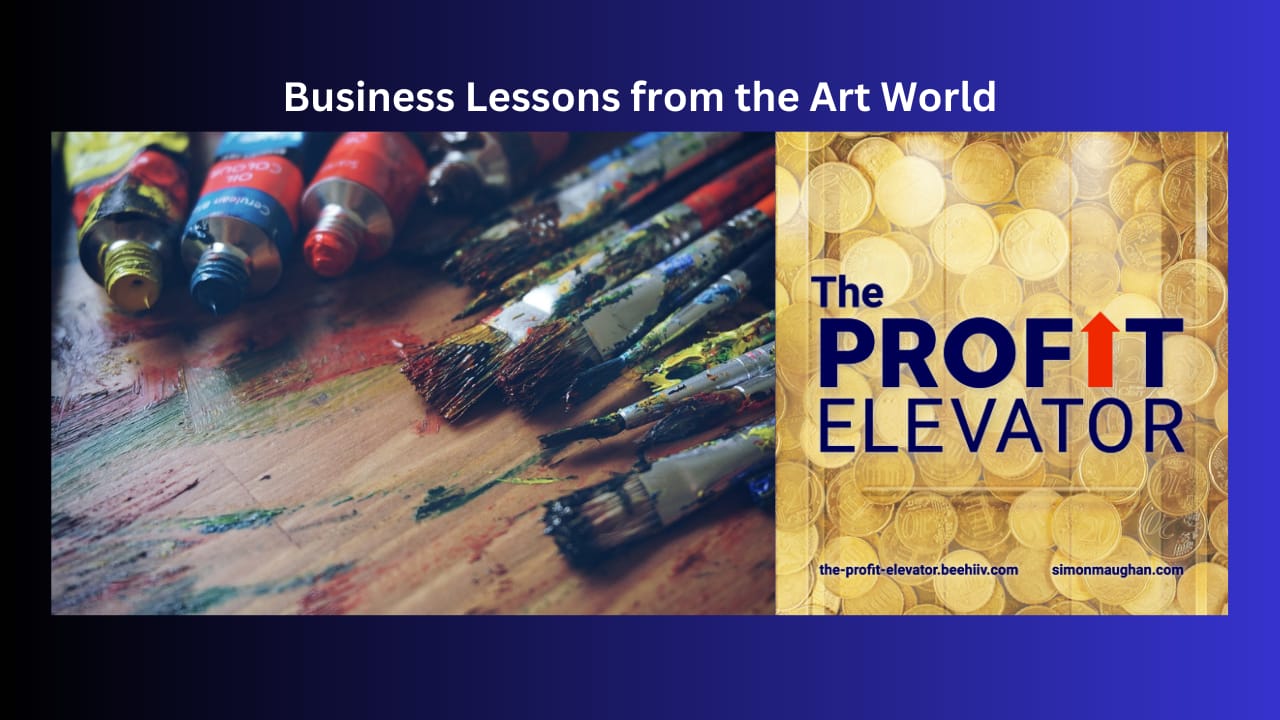
A Recurring Issue
Seven years ago my wife commissioned two paintings. The artist had sketched our daughters when they were very young and I love the drawings. Once more my wife wanted to surprise me on my birthday with artwork.
What followed is familiar in a lot of small businesses. While there is a clear and rigorous process to create a product, the idea of disciplined commercial processes is alien. This lies behind the struggles of many to turn their passion into a business.
Consider for example that half of UK small businesses do not have a budget. They spend based on what is in the bank account and forget the need to plan for next month's payroll or taxes. Bookkeeping can be outsourced for relatively little, but the owners ignore the problem to avoid the cost.
Surprise and Delight
The painting began with a studio sitting in a London hotel. Sketches were drawn, photos taken and questions asked. All went well and my wife was excited to see what developed.
Then the artist fell ill, communication dropped off and the weeks without contact became months. The project was forgotten for three full years. Then out of the blue, a digital image arrived of how the artist imagined my elder daughter to look. It is both captivating and accurate.
What's more, there is a video of the painting process, which itself is a work of art. It details the evolution of the picture, the trial and error behind the choice of colours, and provides an insight into the hard work that is at the heart of creativity. It was both a surprise and a delight.
The picture was almost finished, requiring just one more step and it would be with us soon. Then came the apologies and the excuses before the trail went cold again.
The Problem of Perfectionism
There is a good business fighting to get out here. The product is beautiful and has a high value for the client. The expansion into video creates reach and sales opportunities. In these circumstances, price is a secondary consideration for clients.
The issue is discipline. The control in the painting process is not matched by the same rigour in commercial processes. Client communication is a secondary consideration. Had the transparency the video gave into the creative process, been applied to updating customers and closing a deal, the outcome would have been better for both of us.
But the biggest issue is procrastination. Perfectionism is a weakness that inflicts more industries than art. In software, it manifests as always needing one more feature before release. The creator seeks a perfection that buyers neither want nor understand.
I hired two forensic accountants while working at DrKW. They helped me dig through dubious accounting and create a picture of operating cash flows at European financial institutions. It was a unique piece of work, but they were never quite finished modelling, and I had to force them to publish. The research was innovative and valuable as it was.
The artist’s illness was unavoidable and such disruption can cause small businesses to go bust. But larger organisations must have backup plans. Who steps up if individuals fall ill or leave, and who checks that clients are satisfied, are crucial questions.
How to Scale
Every business has processes. When you start out many are manual and won’t scale, but they are necessary to discover what works. When you find out, be ruthless in your focus and cut out what takes time and delivers little. Iterate and improve the process, and look for ways of automating it to free you for new opportunities. This is how businesses scale.
It is important to acquire missing knowledge, such as how to budget and forecast. When you understand and control processes, you choose which to outsource. It is efficient to focus on what you do best while delegating the rest, and research shows that buying time-saving solutions boosts happiness*.
Questions to Ask and Answer
Which parts of the product creation process can be automated?
What are the commercial skills that are in short supply?
To whom can I delegate those tasks?
*“Buying time promotes happiness” by Whillans, Dunn, Smeets and Norton.
https://doi.org/10.1073/pnas.1706541114
Three ways I can help you:
My Resolving Team Conflicts course helps improve your managing and motivating of people.
The Profit Through Process Planner is a blueprint for scaling a business based on 30 years of experience.
I work directly with a small number of businesses with the budget and determination to transform their growth. Find me at Simon Maughan.
If you found this letter valuable, please share it with a friend and a colleague.
